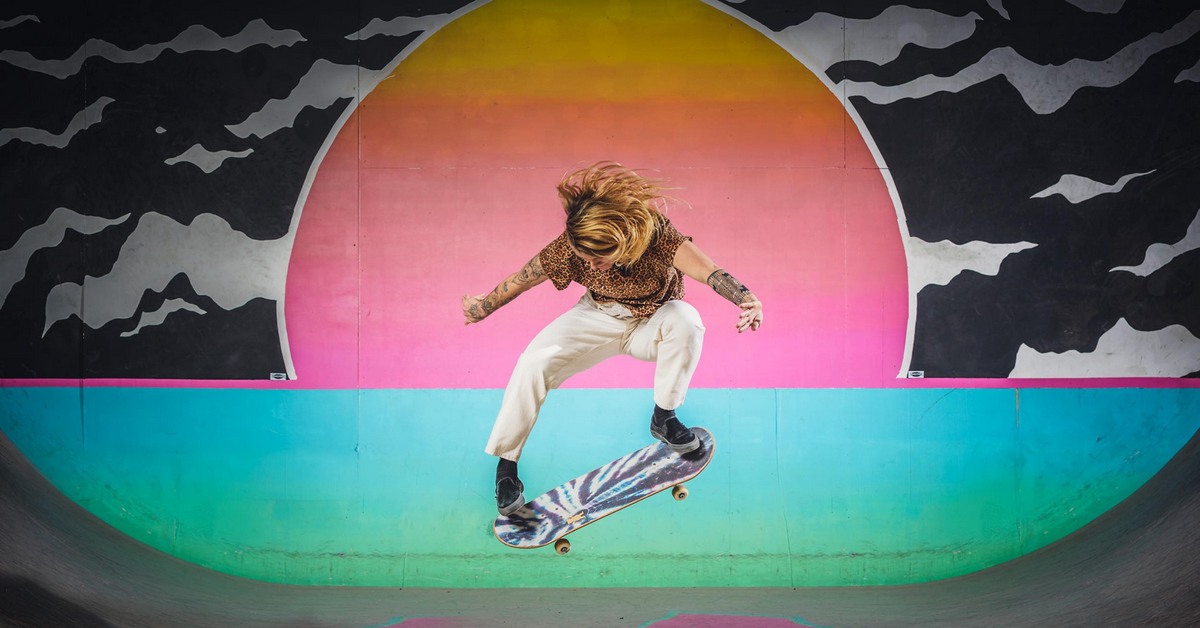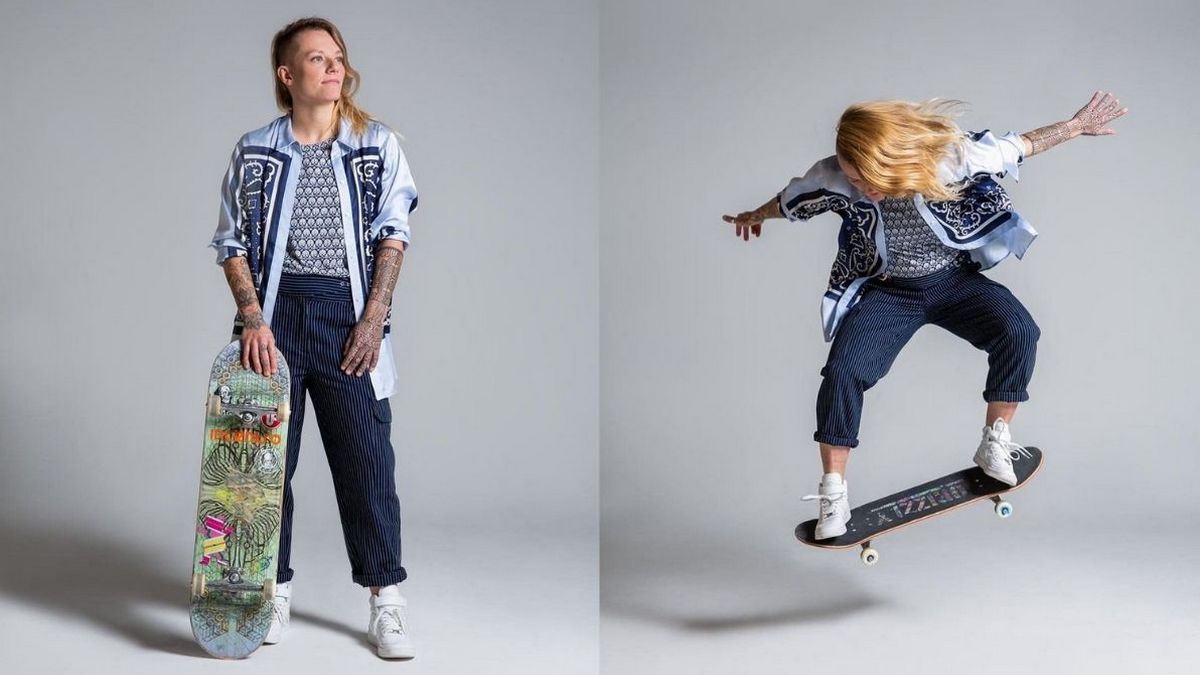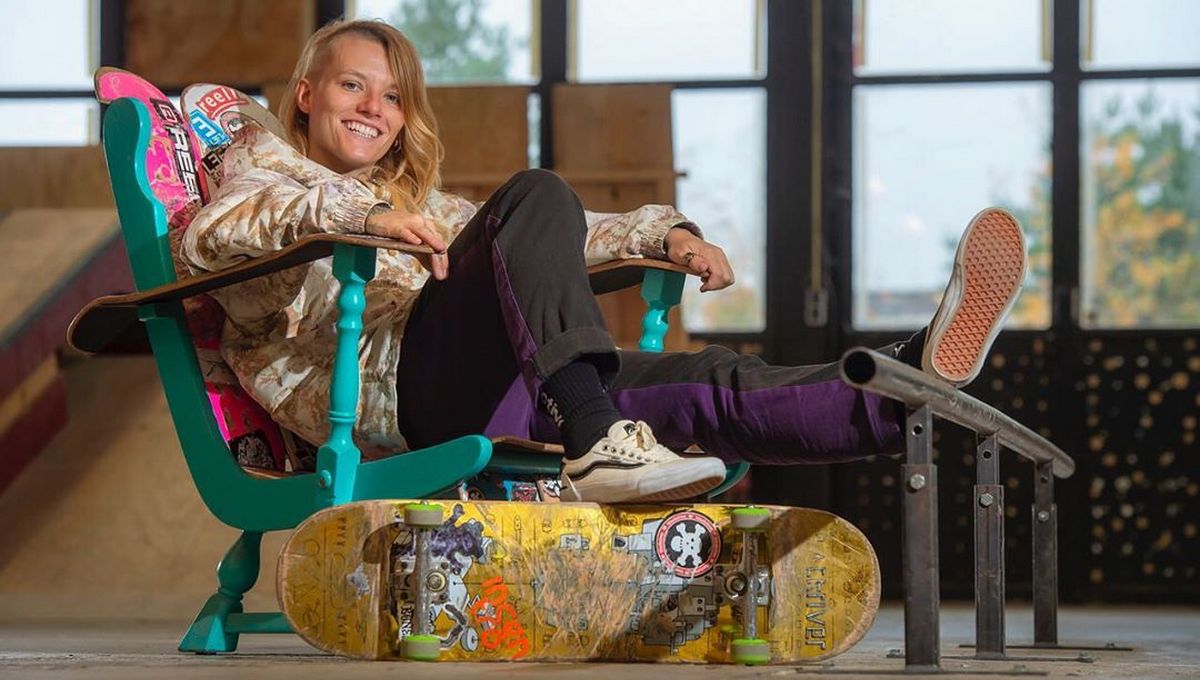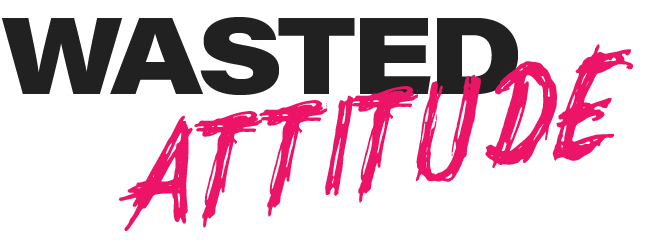Words: Miljan Milekić
For years, Candy Jacobs has been a staple in European skateboarding. Not only she did a lot for the women skateboarding on the continent, but for the culture in general. Successful at contests, creative and original in everything she puts her foot on, she was always a role model, and never hid from the role. We caught up with her during the lockdown, and her recovery to discuss her career, influences, youth work, and much more.

First of all, thank you for finding the time for us and doing this. So what’s up? How are you spending the isolation?
Candy: Thank you for your time! I pretty much spent the first weeks at home and created a home gym. I went from one nature spot to another with my dog and took some time to look back on a crazy year. The first few days, I still skated in my own park, which is private, so it was accessible for me, but then I got injured, so I had a lot of time to recover. Now things are slowly getting back to normal, but I am still careful.
So, how is your recovery going? I know this one took you out for quite some time, but it seems like you’re back on track and killing it again now.
Candy: Yes, I was out for about two months, my fibula pulled out my fibula cup – not sure that’s the right term – and it took me quite some time to get back to skating free of pain. Messed up my other knee during quarantine by stepping of my board funky and have been out for a little bit again. Stoked to be back skating on full strength now, though!
How frustrating can injuries be for you at this point? The physical part is quite self-explanatory, but I’m talking about the mental part, not being able to ride, losing some opportunities, missing events.
Candy: As far as events go, the last year was insane. You literally had no time to recover in between contests. The idea of missing out on one of those events is crazy. The mental part is always the hardest part, I always tell my friends who don’t skate that skateboarding keeps me sane. Being injured always shows me how small the gap between sanity and insanity is. I am a very active person, so when I don’t skate, my thoughts get tangled up pretty easily, working out doesn’t do the trick for me. I am lucky to have a mental coach Suzanne Kouwenhoven, she definitely helps to keep me on track during these moments.
One of the things you had to pull from was Women’s Battle of Berrics, where you missed the finals night. How was it to be part of the event, and how do you feel about it finally including women?
Candy: Battle at the Berrics was an insane opportunity and so much fun to be a part of. It was so different playing a game of skate with the other women in skateboarding who I see as friends, kind of a break from all the pressure of doing contests – even though it is still a contest. Had a lot of fun, and I am grateful for the opportunity. For sure, hoping to get my redemption. It’s awesome that they included women in the mix, more visibility means more opportunities.
In the last few years, it seems like women skateboarding is gaining a lot more traction, while the riders are getting a lot more recognition. However, it seems like there is still a way to go, and lots of improvements are to be made. In your opinion, what would be some of the next steps that are necessary to be done, to continue the progress of women skateboarding?
Candy: As mentioned before, I think visibility is definitely a big factor. Right now, social media channels are definitely helping women skateboarding and visibility. Gender equality is still a big thing, for example, there are still contests that have inequality in price purse, there is definitely room for more visibility in campaigns and commercials. Europe is a little bit behind compared to the US, in supporting their riders, and especially women riders. So there’s definitely a long way to go, but it’s slowly but surely changing.
So far, you are having a long and successful contest career, making some big results at Street League, Dew Tour, or X Games. How hard is it to maintain such a high level over the years and constantly improve?
Candy: It’s not that hard, I think skateboarding is the best thing in the world, and I am always eager to progress my skating. It’s hard sometimes to keep up with the pace of contests and the young ones, but that makes it fun to see how far I can still go, and to if I can reach my highest potential. That doesn’t mean I have to “win” every contest I enter.
What are your favorite events? Where do you feel most comfortable?
Candy: I love all the outdoor events, like the Dew Tour, sometimes X Games, and a lot of European competitions. It gets me more hyped and somehow puts less pressure when performing. On the other hand, being in an SLS arena is one of the most intense feelings I’ve ever experienced. Every event has its own charm which keeps it fun.
You are part of the Dutch Olympic Team. Can you tell me more about the experience? What are your plans now that the Games are pushed back for 2021?
Candy: It’s amazing that we got the opportunity now to make a living out of skateboarding as athletes. At first, it felt uncomfortable because I have so much fun doing what I do and did not want it to feel like a job. But it opened up doors to travel easier, have better physical therapy and training, and easier access to the healthcare system. Now that the Olympics are pushed back, it gives me more time to learn from last year, considering this is our first “break,” and see what I want to do differently in the upcoming year. Definitely trying to enjoy the opportunities we get, and the times I get to spend with my friends even more.

Spending most of my life in Serbia, and some of it in Belgium, I’ve happened to notice a big difference in challenges skateboarders in Europe have to overcome, compared to people in the US and some other countries. In Europe, especially in the East, the culture is still on the margins, the industry is just not as developed, and it’s so hard to keep up. Many riders I’ve met could make a living off skateboarding only when non-skateboarding companies got into the mix. I’m talking insurance companies, car dealerships, tech stores, phone, Internet, and Cable TV service providers. Having a few non-skateboarding sponsors yourself, does it feel ironic that sometimes big, corporate brands, or companies that have nothing to do with skateboarding culture are having more impact and give more support than core skateboarding brands?
Candy: I somehow think it makes sense that those companies give more support to their sponsored people. Skateboarding depends on skateboarding, and skateboarding always has highs and lows in how many people pursue it, how many people want to buy boards, and for example shop local. Non-skateboarding companies have a different income and don’t depend on skateboarders, which makes the market bigger. It would be rad if core brands had the same opportunities and will to support their riders in the same way, and also could give some security for the future of their riders.
With some of those companies not being familiar with skateboarding culture, how challenging does it get to balance a skateboarding career with being a good ambassador of their brands? I know that sometimes, some of the people get pressured to do good at contests, as that’s the only language some of their sponsors understand.
Candy: I can’t speak for everyone, but I try to have close contact with all my sponsors, and I am pretty clear about my values from the first conversation on. I don’t deal with external pressure that well, and it also doesn’t make my skateboarding better. I try to be myself as much as possible, within a team, or in working with a brand, make sure they understand how much my freedom and skateboarding mean to me, and always give my all. I think if you know your core values, it doesn’t have to be a struggle.
Recently, you did some modeling work for Berden Fashion. How was that experience? Do you think we can see some more of that kind of work from you?
Candy: (laughs) Nice that you saw that. It’s pretty cool, they’ve been supporting me since I did my crowdfunding campaign a few years back. I didn’t really have any income from skateboarding and still wanted to try to skate as much as I could. They chose to support me during that time, and I am thankful for that, so I try to work with them in fun ways. Modeling is definitely not my forte, but hey, never say never.

I’ve seen quite a few girls in extreme sports do some kind of modeling, often for brands that have nothing to do with sports they do. Do you see it as a good opportunity for female athletes to use their success to further build on their careers, or is it sometimes a necessity, even for pro riders, to have another job, only to keep the career alive? If so, how to change that?
Candy: It’s still really hard to make a living as a skateboarder, doesn’t matter which gender. I think it’s not a necessity, but it’s an accessible way in the world outside of skateboarding to create visibility. I also don’t think it’s good or bad. When an opportunity arrives, you always have a choice. It’s up to you what you do with it. There was, for sure, a time in my life where I didn’t have the freedom or luxury to say no to certain opportunities. I would take anything that looked like an opportunity. I am more confident and comfortable with who I am and what my values are right now, so I only do stuff that I like.
Can you tell me more about the skateboarding scene in the Netherlands? Apart from you, Sewa [Kroetkov], and Nassim [Guammaz], I don’t really see too many riders making noise internationally. Also, apart from Roos [Zwetsloot], who I discovered through your posts, are there any other young guns we should pay more attention to?
Candy: The Netherlands has some insane skateboarders. In my opinion, one of the best skateboarders in the world right now, Daan van der Linden – Skankie, is Dutch. There are definitely some young guns on the come up; Keet Oldenbeuving has been killing it for a minute now, Diego Broest – best style ever, Jip Koorevaar – one of the most creative skateboarders I know, Remco Erkenland learns a new trick every day, Bart Buikman… New skateboarders are popping up every day. The scene in the Netherlands is booming!
Your name often pops up in the conversations about the pioneering female skateboarding in Europe. Do you see yourself as a role model for other girls, and do you ever feel any kind of pressure knowing that young girls all over the Netherlands, Europe, and the world are looking up to you?
Candy: I do see myself as a role model. I’ve been skating for over 16 years now, and I’m also trying to expand that role by building a skatepark in my city, giving talks at school, but also by using my Instagram for the good. It doesn’t feel like pressure, even though I am aware that people are watching. It feels like an honor to be able to inspire and share my love for skateboarding.

It seems like you were always there for kids, be it a job as a youth worker, or by participating in projects such as Pushing Borders or Wheels of Fortune. What motivated you to focus your energy on youth, and how important is it to keep doing it?
Candy: The youth inspires me. I am always hyped to be around young people, their lives are vibrant, and they are super active, everything happens at the same time, and there’s always action. It attracts me, and I believe young people are more open to learning and able to change the world. So, why not be a part of that?
Speaking about the role models, I would like to end up with something I would usually start with – how did you get into skateboarding, and who were the riders you looked up, or still look up to?
Candy: I started skating out of boredom really, but also because I finally found something I was better at than my older brother – who’s an absolute legend, by the way! I stuck to it because I fell in love after that first push. A lot of my friends inspire me, Manny Santiago, Brandon Buchko, Mariah Duran, Jen Soto, Leo Baker, and the list goes on. Elissa Steamer, being the only woman in Tony Hawk’s Pro Skater, for sure changed my life, without me maybe being aware of it at that moment in time. Right now, some of my favorite skaters are Rob Maatman – Dutch, by the way, Ishod Wair, Jamie Foy, and always, Marissa Del Santo.
So, one last – why do you “love” skating switch so much?
Candy: I suck at skating switch, it’s legit so bad. I fall pushing every time.
Follow Candy Jacobs:
Website: candyjacobs.com
Instagram: instagram.com/candy_jacobs
Facebook: facebook.com/Candy.Jacobs.Skateboarding


